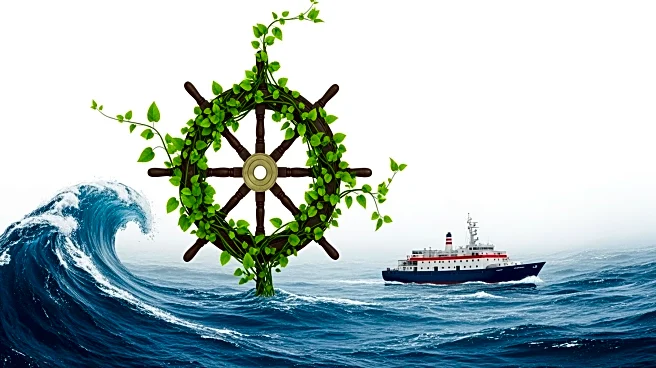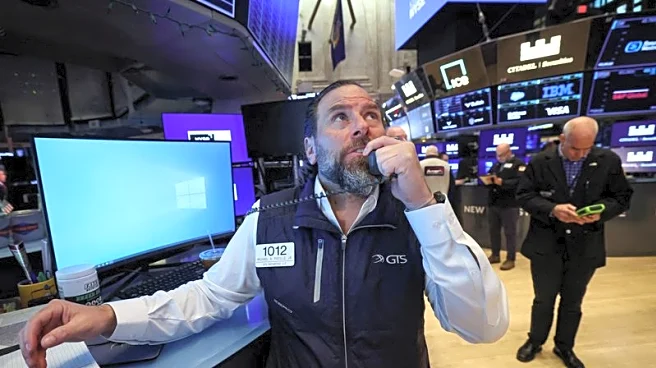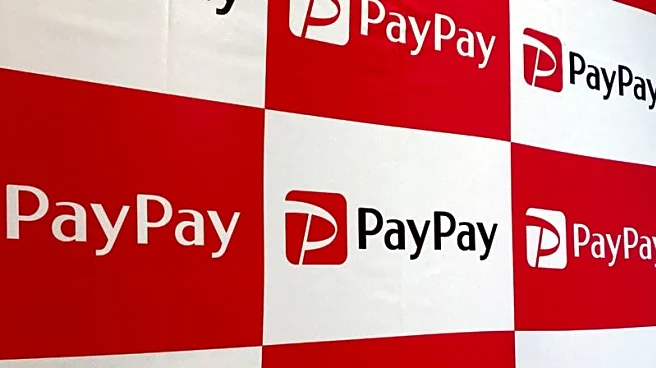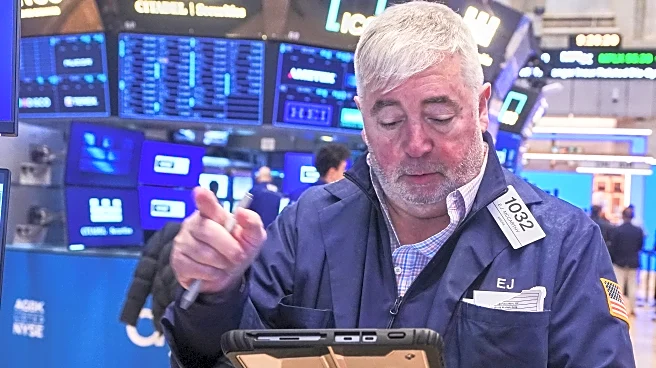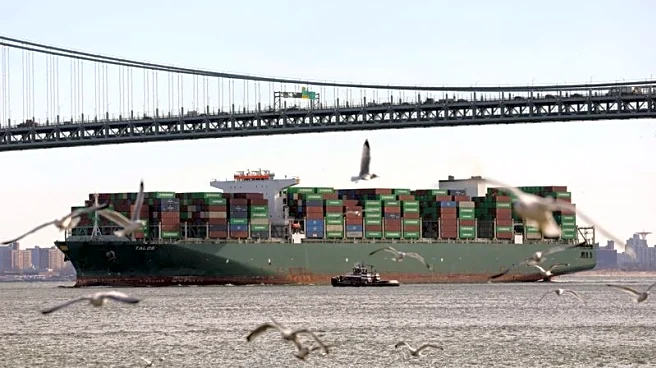What's Happening?
The International Maritime Organization (IMO) has delayed its Net Zero Framework by one year, a decision made during the Marine Environment Protection Committee (MEPC) meeting in October 2025. This delay has significant implications for the shipping industry,
as it may lead to the emergence of more regional legislation and Emission Trading Schemes (ETS) to fill the regulatory gap. The European Union's ETS, initially considered a transitional measure, is now poised to become a leading example for other regions. Concurrently, the European Commission has released guidelines for reporting and verifying methane slip factors, allowing shipowners to use measured data instead of default values. This development is crucial for accurately reporting greenhouse gas emissions and managing costs under the EU ETS.
Why It's Important?
The delay in the IMO's Net Zero Framework could accelerate the adoption of regional emissions regulations, impacting global shipping's decarbonization efforts. The EU ETS's increased relevance may set a precedent for other regions, potentially leading to a fragmented regulatory landscape. Shipowners and operators must adapt to these changes to avoid financial penalties and ensure compliance. The ability to use measured methane slip data is a significant advancement, as it allows for more precise greenhouse gas accounting, reducing the risk of over-reporting emissions and incurring higher costs. This shift underscores the importance of technological solutions in meeting environmental regulations and highlights the growing role of regional policies in global shipping.
What's Next?
Shipowners and operators need to act promptly to align with the EU ETS requirements, as voyages from 2025 will fall under the 2026 ETS cycle. This includes ensuring accurate measurement and verification of all combustion-related greenhouse gases, such as methane, carbon dioxide, and nitrous oxide. The development of procedures for reporting nitrous oxide factors is anticipated soon, which will further refine emissions accounting. The shipping industry must invest in technologies like VPS EMSYS to continuously measure and verify emissions, ensuring compliance and minimizing financial exposure. The evolving regulatory landscape may also prompt industry stakeholders to advocate for more harmonized global standards to avoid regulatory fragmentation.
